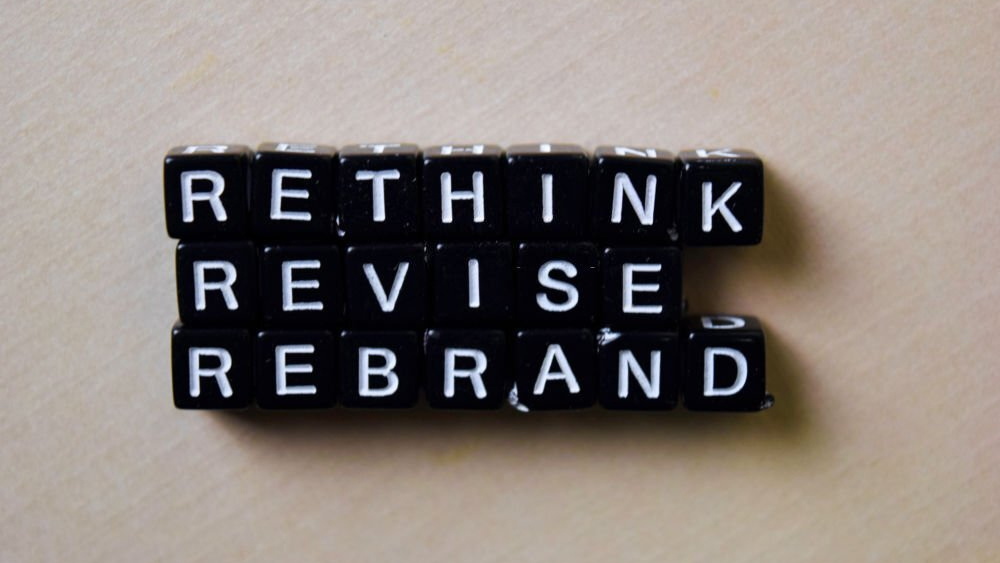Seven reasons to change your business name

8 types of logos to consider for your brand
December 16, 2022
The importance of photography in digital marketing
January 13, 2023Why do businesses change their names? It’s a fair question, given that renaming any business can be time-consuming, costly, and complex. When you pick a new business name, you’re not only changing your website’s URL but also upgrading all of your branding and marketing assets and creating a new identity from the start. However, choosing a name for your organization may be a painful task. Before finally taking the plunge and choosing a name, you may spend weeks or even months writing endless lists of keywords, conducting online research, running business name ideas past colleagues, friends, and family, and weighing the alternatives.
What is the logic behind changing a business name?
Companies and businesses rename themselves for several reasons. Some people must adopt a new name because they did not conduct adequate trademark research before registering their original brand name. Others are forced to adopt a new name due to a merger or acquisition that shifts the brand’s focus. A name change typically indicates that a business has outgrown its initial title in some manner, either because the previous appellation no longer relates to the brand, they’re attempting to attract a different audience, or they’re taking a new route. However, the renaming process and choice are unique to each business.

Reasons to change your company’s name
So, why change the name of your business? There are several compelling arguments, some more compelling than others. Here are seven of the finest reasons to alter your company’s name.
You are legally required to change the name of your business
If another business has issued you a letter asking you to alter your company’s name, now is an excellent time to begin rebranding. It’s also a perfect opportunity to ensure you don’t find yourself in the same predicament again. When choosing a name, make sure it isn’t already in use by checking all common law usages, social media handles, rival product names, and URLs.
Changing the business name for marketing purposes
Unless a company has a monopoly or generates its market, marketing is the key to developing a steady stream of sales. Many changes can occur over a company’s history, making it a wise marketing option to rebrand. When the market identifies a company more by its product name than by its own, it may be time to adopt it. Similarly, when the nickname is more well-recognized and utilized in your market, it may be time to change it.

Your name causes brand confusion
Is your company frequently mistaken for another with a similar name? Do your consumers often mispronounce or spell your name? There are several ways a business name might be misunderstood. Each is a small dagger aimed at the center of brand equity. When clients are puzzled by your business name, even for a little while, they cannot form positive associations with it.
Changing the business name may bring new consumers
Your name should address the type of consumer you wish to target, yet, this ideal customer may vary over time. As firms develop and generations change, some may need to adjust their brand name to appeal to a different type of client. Brands that want to engage younger customers today, for example, will need to employ shorter, more emotional names.

When the company name has a geographical reference
This occurs frequently. An entrepreneur begins in a specific location providing a specific service and selects a firm name such as Pittsburg Plumbing or Dental. Consumers go elsewhere when the firm expands and adds new offices and services, assuming the company only runs in the initial city, area, or state – delivering only the original service.
Changing business name for rebranding
Brands might become outdated if they do not periodically renew and alter their image. While you don’t have to go through a complete rebrand and change your name to stay relevant, you may decide that a more exact name is a beautiful approach to updating your firm. Sometimes a rebranding may be required in reaction to a crisis in your company’s reputation. If anything happens, that causes your organization to be connected with something terrible, a name change might assist you in avoiding future unwanted implications.

Changing the business name during an ownership Transfer
A more robust brand name is frequently adopted when a company merges, acquires, or consolidates with a stronger brand. A new name is essential to establish a unified brand and culture in many circumstances. When making many purchases, building an umbrella brand to trade under might be better. It can generate a more appropriate image of size and scope to advertise the entire spectrum of brands. A corporate reorganization might alter the brand’s orientation. The company’s culture may be significantly enhanced with a new direction and new practices. This is frequently followed by a brand realignment and a new, more appropriate name and visual identity.
Changing your business name in Vancouver
There are several reasons to rename your business, some more compelling than others. And if you do decide to change your name, you’re in for an exciting and occasionally tricky trip. While you can come up with a name on your own, there are branding gurus who specialize in creating names for businesses. One such branding specialty business is Cactus Media Group, a rebranding company located in Vancouver. We understand the process from start to finish, are swift and talented at what we do and can see the broad picture. This means we can develop a name for you with more impact and market appeal that suits your firm accordingly.




